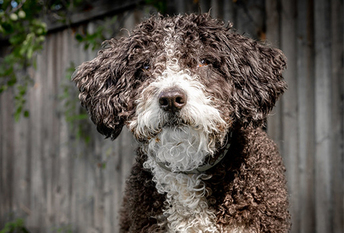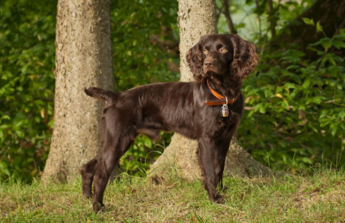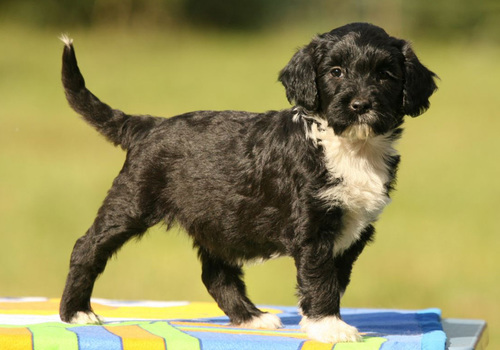Curly- and wavy-haired working water dogs have been documented throughout Europe for centuries and are believed to have influenced the development of several breeds of dogs, including theNewfoundlandandChesapeake Bay Retriever.
The Portuguese Water Dog has a long history of use in its homeland, where it was, and still is, a vital part of the fishing industry. Prized by their owners, the dogs are primarily used to herd fish into nets. Other duties include taking messages from boat to boat and retrieving escaping fish and lost objects.
In 1983 the breed was first recognized by the AKC. Some of the Portuguese Water Dog's talents are obedience, water trials, agility, therapy dog and assistance dog.










